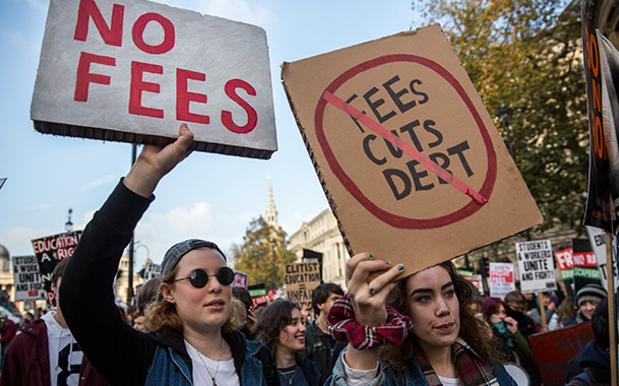
The plot continues to thicken regarding the Abbott Government‘s long-mooted, highly controversial plan to deregulate University fees and create an open market for the Higher Education sector.
Whilst the plan – detailed in last year’s contentious and much beleaguered Federal Budget – asserts that it would alleviate excess strain the current system places upon the budget and the so-called “economic crisis” that we, as a nation, are enduring on a day-by-day basis, economic modelling from one of the nation’s foremost financial forecasters suggests that the exact opposite is the more likely outcome, with the system tipped to drain the budget of billions.
Ben Phillips, a principal research fellow at the National Centre for Social and Economic Modelling, delivered findings of a study into the potential effects of fee deregulation on the economy to parliamentarians and policy makers at an invitation-only forum held at the University of Canberra last week.
He found that, in a forecasting model where Universities increase fees by 50 percent (a “cautious” assumption, by his assertion) this would trigger a rise in inflation, due to the higher load of debt that the Government would be straddling through HECS schemes. This would cause knock on effects for the economy, including a 0.7 point rise in the Consumer Price Index. Government benefits are indexed to the CPI, so by this estimation that added cost to the budget would be somewhere in the vicinity of $1billion, due to higher payments for welfare, carer and pension recipients.
The Government also would see an increase in the amount of bad debt undertaken. Currently, about 17 percent of student loans – or around $1billion – are written off annually by the Government in anticipation of them never being paid. Higher University fees means higher debt loading, which in turn means that amount of bad debt increases, as does the amount that needs to be written off.
Phillips spoke to Fairfax Media and stated, “Only under the most optimistic fee scenarios would it be likely that the proposed package would save the government money in the future. The fiscal outcome is not likely to be a deficit reduction measure. Rather it would increase the deficit into the future.“
This modelling was corroborated by Andrew Norton from The Grattan Institute, himself a former adviser to Education Minister Christopher Pyne.
Key crossbench senators were in attendance at the forum, and the conclusions have only steeled their resolve to block the reform measures – which have been stripped back several times – in the Upper House.
The Government’s own financial modelling relies heavily on the assumption that deregulated fees will lead to a lot, if not most, of Australia’s universities offering their courses at a lower price than the current regulated market demands. Even despite the fee reforms coming in the same breath as the reduction in higher education funding from the Federal Government.
A spokesperson for Finance Minister Mathias Cormann explained thusly, “The budget impact of our higher education reforms has been costed by Finance taking all relevant considerations into account. We do not agree that our higher education reforms will lead to the sort of fee increases some have suggested. Competition between higher education providers will see many students paying less than they do now for their education as the government supports more higher education options.“
But with Australia’s top economic modellers suggesting that will not be case, and the hostile senate as determined as ever to continually block the reforms, it might be ok to breathe a bit easier for a while with regards to your future HECS bills.
Photo: Rob Stothard via Getty Images.
via SMH.



